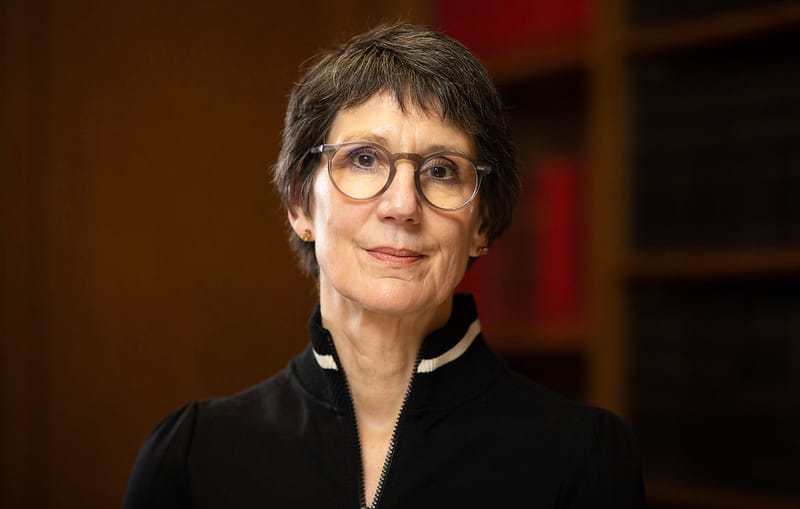Separating Better: the Free Co-Parenting App That’s About to Lose Its Funding
When a parent starts the process of ending a marriage, they have so many questions: Where will I live? Will the children be okay? Will I have enough money? Why do I feel so angry? There’s a minefield of practical considerations to pick through, and an emotional tightrope stretched across it all.
When a parent starts the process of ending a marriage, they have so many questions: Where will I live? Will the children be okay? Will I have enough money? Why do I feel so angry? There’s a minefield of practical considerations to pick through, and an emotional tightrope stretched across it all.
As they search for a way forward, parents often find themselves in an internet black hole, cobbling information together from various sources, unsure which of those sources to trust, losing track, and eventually ending up in the legal system simply because they don’t know where else to turn.
These parents need a single unified digital service that is free to access and that guides them as to what steps they need to take and reassures them that they’re going to be okay. And they’ve got one – for now – because this pitch was the basis of a bid that led to the development of the Separating better app in 2024.
Funded under the DWP’s Reducing Parental Conflict Challenge Fund, Separating better is a child-centric co-parenting app that addresses the practical and emotional considerations of the early stages of separation. It includes an interactive parenting plan and budget planner, conflict resolution skills training, and down-to-earth practical advice, all grounded in research evidence that takes a measure of the user’s emotional readiness levels.
If that all sounds too good to be true, well, sadly it is. The funding covered user research, development, building and launching the app, and an extensive evaluation led by OnePlusOne’s in-house researcher Dr Shannon Hirst, but it ends there. OnePlusOne are currently covering costs to keep the app online, but their resources are limited and, without external support, the app will be forced to go offline in September 2025, just 18 months after it launched.
Evidence-based relational support
If you’re not familiar with OnePlusOne, it is a wonderful charity that has been quietly leading the charge on relationship research since the early 1970s. Not content to let this research gather dust on shelves, they also develop innovative digital support tools with a focus on early intervention, including a number of resources for separating parents. Much of their work is already embedded in the separation journey, including their contributions to the Cafcass Separated Parents Information Programme (SPIP) and the no-fault model of the Divorce, Dissolution and Separation Bill.
Since it landed in the app stores in March 2024, Separating better has gained widespread support, with over a thousand parents already benefiting. Many local authorities, practitioners, and family law professionals have added it to their support toolkit and the response has been incredibly positive. It seems clear that there is a real need for a resource like this.
Referring clients to an app
Separating better is the culmination of years of research into co-parenting relationships. It’s the only co-parenting service using OnePlusOne’s Emotional Adaptation to Relationship Dissolution Assessment scale (EARDA), which is the only reliable measure of parents’ emotional readiness to engage in dispute resolution – think of it as a triage system that lets you know whether or not parents are emotionally equipped to enter into dispute resolution.
The app includes a wealth of practical advice, laid out in a digestible format that allows parents to work through the relevant steps of their separation in whatever order makes most sense to them. If they want to set up a parenting plan or work out their finances as a newly single parent, they can do that too. And, when they are ready, they can access a series of Behaviour Modelling Training videos to learn skills like negotiation, emotional management, and seeing the bigger picture.
If it sounds like I’m selling it, I am. I want my colleagues to know about this app, I want families to have access to it while they’re navigating the choppy waters of separation, and I want to build a call for the funding of these support tools to be extended for those who most need them.
A system under pressure
In 2024, a National Audit Office report for the Ministry of Justice showed there were 47,662 family court cases outstanding. That’s forty-seven thousand families waiting to find out their fates, a significant backlog for a stretched system.
As a result of this backlog the average spend on legal aid spend has doubled to £12,000 per case. The legal system is under extreme pressure and parents and children are getting caught up in it without the proper support that might help them avoid it.
This is not to say that court is never the right option – for lots of families, it is the best solution – but far too many separating parents end up in costly court processes because they don’t see another option. Sleepwalking into court can lead to a ‘win or lose’ mentality and far too often that opens the door to financial and emotional abuse, even if they weren’t present in the relationship.
We need to encourage a system that prioritises equity and access to information and support. Parents need to be able to learn the skills to get through the separation process on an equal footing with each other, with a shared goal of minimising harm and securing positive outcomes for their children. Separating better was created to fill that gap – to support parents before conflict has a chance to escalate. Many of the parents who work through it will be able to avoid going to court entirely, and those who do need us will arrive with skills, knowledge and understanding to engage in a constructive resolution process that minimises conflict and supports their children through change.
If we are to minimise the financial impact of separation and bring co-parents to an equitable position, we need to catch them early. We need to put support in their hands and in their pockets where they can access it easily and without cost.
What difference does it make?
OnePlusOne’s evaluation showed that parents found Separating better helpful with practical challenges like untangling joint finances and sorting out housing, as well as helping them cope with powerful emotions like fear, vulnerability, anger and depression.
Over 1,000 people used the app during the evaluation period, including many who were referred by practitioners. They enjoyed being able to dip in and out, accessing the content that was most important to their situation, and easily navigating back to it. From a situation where information has to be tracked down and vetted, they found themselves holding it all in the palm of their hand, in digestible chunks with the confidence of a solid evidence base.
Following use of the app, parents’ emotional readiness improved significantly, and signs pointed to them being better equipped to take part in cooperative co-parenting arrangements. The parenting plan helped them plan for issues they might not have otherwise considered, and the budget planner helped them figure out how to manage their finances alone.
Parents said that the app was flexible, manageable and relevant. When parents are busy and overwhelmed, having this support for free can be a lifeline. If Separating better vanishes in September, parents will be right back where they started.
What comes next
My colleagues at OnePlusOne have written to the relevant ministers to highlight the need for, and value of, ongoing funding. In the meantime, it is up to the rest of us to make sure the app is being used. I would encourage you to download it, see for yourselves, and invite your clients to use it. It won’t cost you anything, but it could mean your clients are able to engage more productively with services – whether that’s children’s services, mediation or court – and to reach agreement faster.
Separating better has successfully reached parents across the spectrum of separation, and it has had a positive impact. By strengthening parents’ capacity to co-parent cooperatively, manage conflict more effectively, and become more emotionally ready to engage with the task of separating, the app has given parents the best chance of mitigating the negative outcomes of separation on their children and themselves. I just hope the story doesn’t end here.





